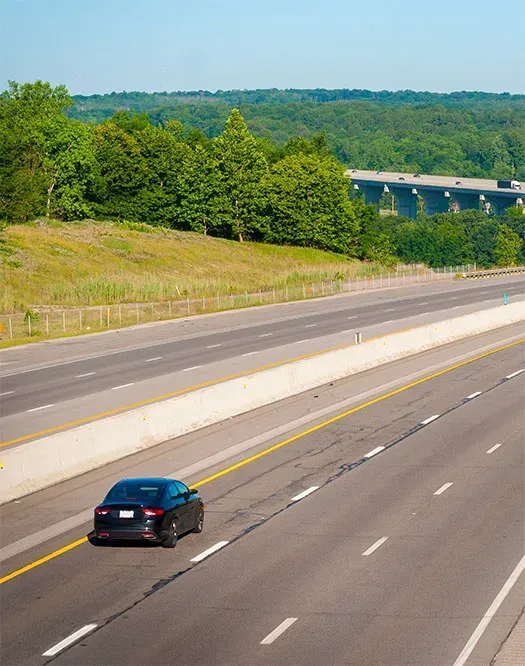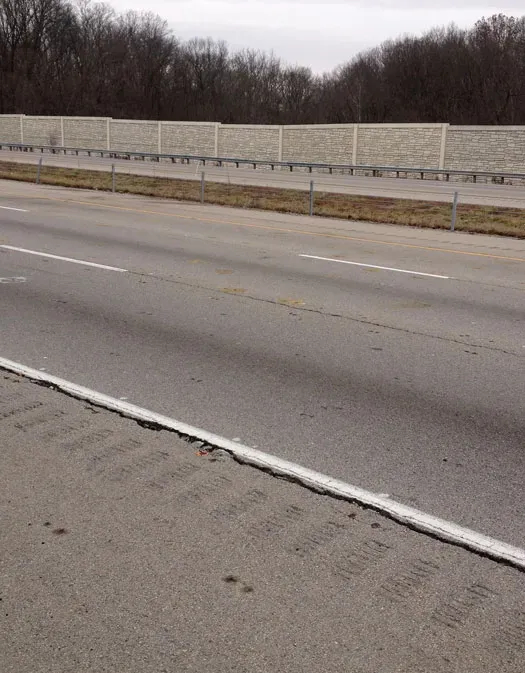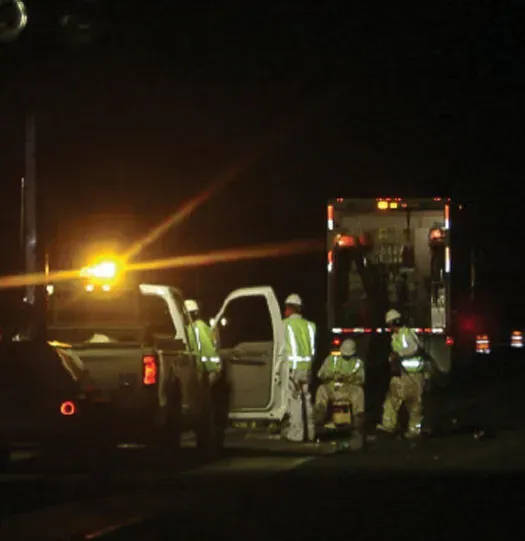Raising Asphalt Roadway Back to Grade in Ohio
Problem
A section of highway I-275 in Ohio developed a two- to six-inch dip across six lanes of full-depth asphalt. This problem was caused by a compromised corrugated metal pipe 50 feet below the surface which had allowed soils to be drawn down and out from under the roadway. The Ohio Department of Transportation (ODOT) needed a solution and fast. ODOT contacted URETEK because they were familiar with URETEK’s innovative technologies and proven track record after working with the company on similar projects in the past. ODOT also knew that URETEK could provide an effective repair while also saving money and reducing delays for the traveling public.
Analysis
URETEK used Dynamic Cone Penetrometer (DCP) testing to confirm and locate the weak soil zones. The section of I-275 that needed repairs was a divided, full-depth asphalt highway with six total lanes and a very high traffic count. To prevent disruptions in traffic flow, all work needed to be conducted at night. URETEK was also working against the elements as temperatures were beginning to drop and inclement weather was fast approaching. URETEK estimated a maximum 30-day window to repair the damaged section of I-275.
Solution
Based on the results of the DCP testing, crews performed URETEK Deep Injection® (UDI) at various depths. Most of the injections were targeted to the weakest soil areas in the upper ten feet to provide direct support to the pavement system. Because the asphalt roadway was brought back up to grade with minimal pavement undulations, milling and filling the asphalt post-injection was not required for this project.
Result
URETEK successfully brought the damaged section of I-275 back up to grade and repaired the corrugated metal pipe in only 12 nights. URETEK completed the project on time, and to date the roadway is holding up very well. As is always the case when URETEK injects into soils to fix an underlying problem, URETEK provided a two-year unconditional warranty against settlement. ODOT was very pleased with the results, especially when they considered the alternative. If ODOT had not pursued a repair solution, they would have needed to excavate the entire six lanes of I-275 down 50 feet, replace the corrugated metal pipe, and rebuild the interstate. This would have been extremely expensive and would have required significant down-time whereas URETEK completed the job at ten percent of the reconstruction cost and with zero daytime lane closures.
URETEK Deep Injection® (UDI)
Widely referenced throughout our industry, UDI involves the injection of structural polymer into base and subgrade soils to increase the load bearing capacity. This is achieved by injecting the polymer through small holes drilled directly through the pavement structure to depths determined by site-specific analysis. Our URETEK 486 Star® material flows easily into voids and weak zones within the soil mass below. Through a controlled chemical reaction, the expanding polymer compacts surrounding soils and applies a controlled pressure on targeted areas of the affected pavement above. If needed, a multi-injection design plan is utilized to gently return the pavement to its original grade. The composite material quickly cures into a strong, dimensionally stable, and water-resistant geo-material, providing years of reliable service.
URETEK 486 Star®
URETEK 486 Star® polymer is a two-component, high-density, expanding thermoset polyurethane system. It was developed to be the ideal solution for under-sealing, void filling, lifting of settled pavement, stabilization and stiffening of weak soils, and for encapsulating and sealing buried infrastructure. URETEK 486 Star® is environmentally inert, non-toxic, and resists underground water erosion or weakening due to its industry-leading hydrophobic properties.


